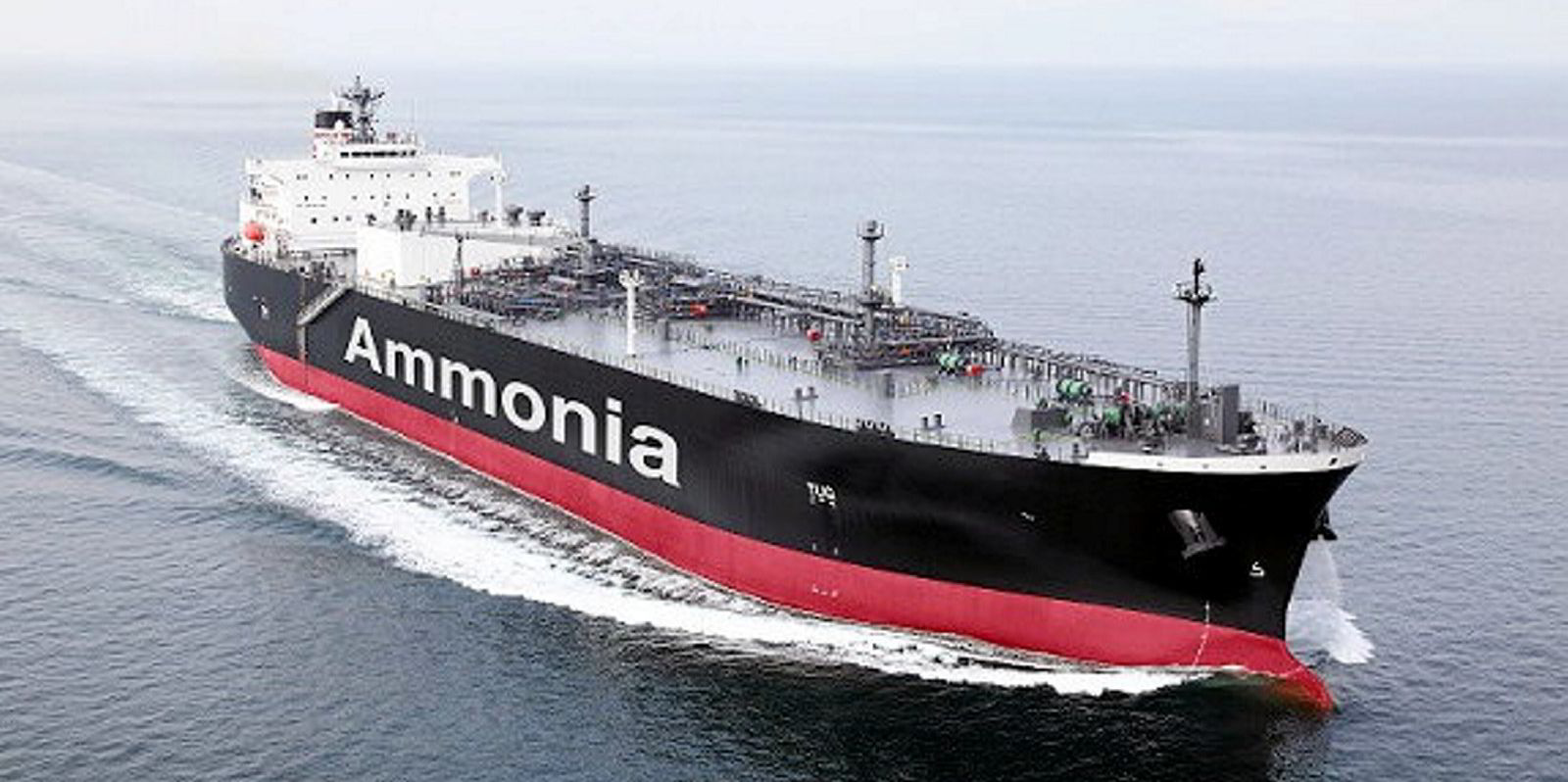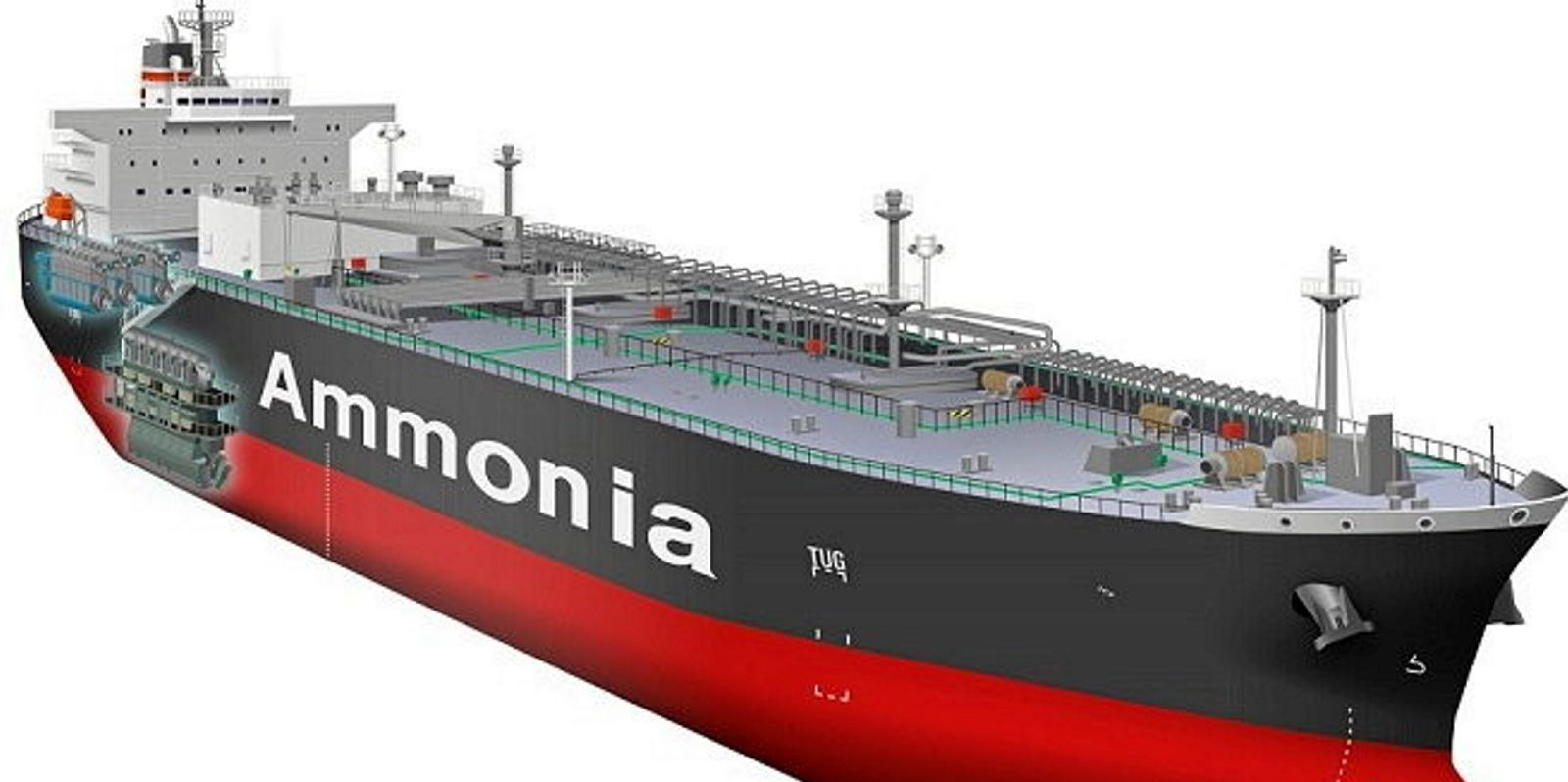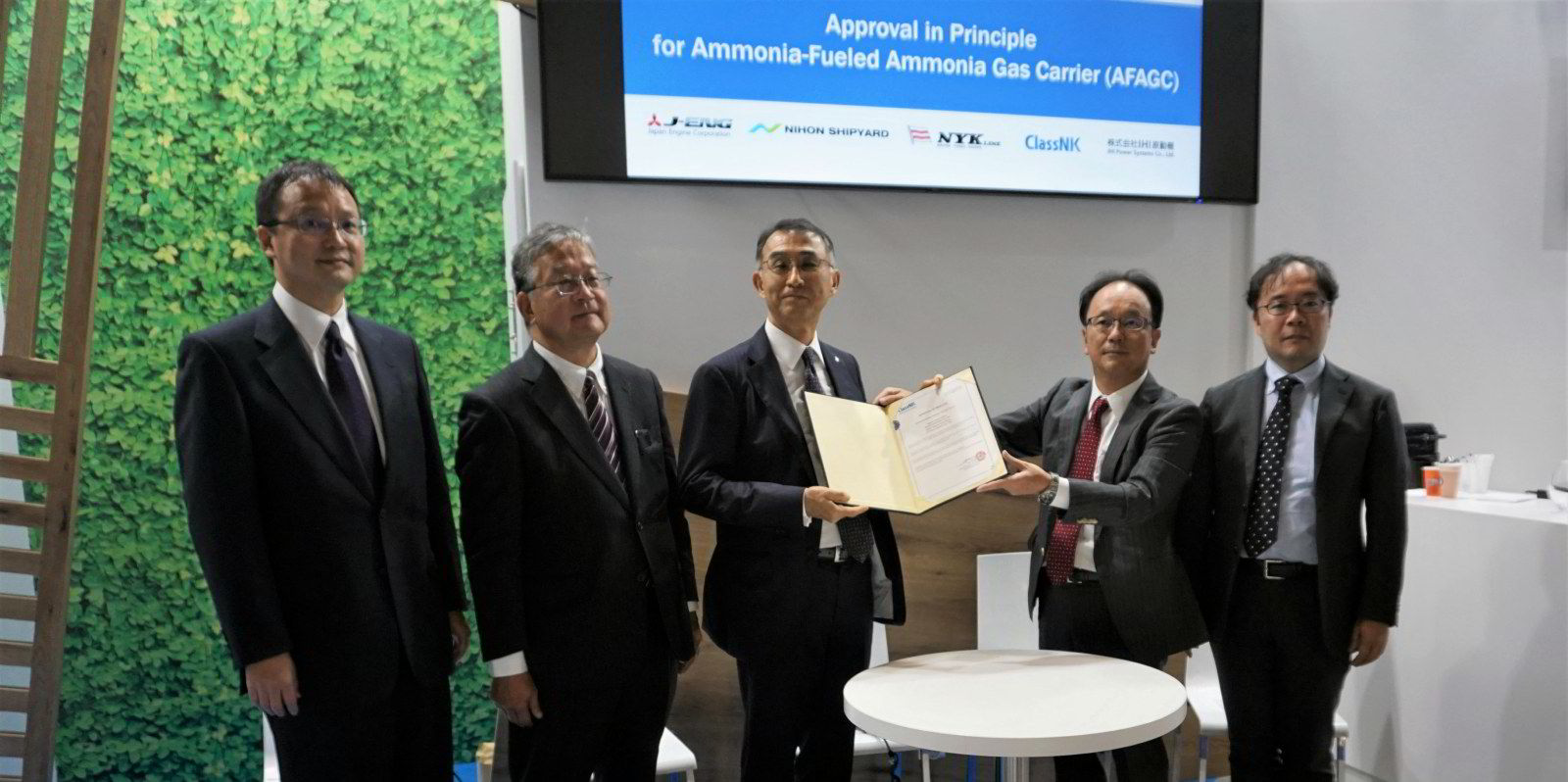Japanese energy giant Jera has teamed up with compatriot shipowners NYK Line and Mitsui OSK Lines to launch a study into the transportation of ammonia.
The company intends to import the ammonia for fuel at its Hekinan Power Station in Aichi Prefecture, which is slated to start commercial operation in the late 2020s.
It is working on a project to demonstrate the use of fuel ammonia at the power plant, which aims to switch 20% of the fuel at Unit 4 to ammonia.
Jera said larger transport vessels are needed to enable the low-cost procurement of ammonia in the large volumes required fuel for power generation.
The three companies aim to examine ways to develop large-volume ammonia carriers and to establish safe transport systems.
“Ammonia is mainly used as a raw material for fertilisers, and the amount of ammonia transported by sea is limited,” said Jera.
“But with ammonia emerging as a next-generation clean energy source that does not emit carbon dioxide during combustion, large-scale demand for ammonia is expected in the future, particularly for co-firing and as a hydrogen carrier in coal-fired power plants.”
Since February 2022, Jera has been conducting an international competitive bidding process for ammonia fuel procurement, including an opportunity to participate in a fuel ammonia production project.
TradeWinds reported that it sent out a request for proposals to more than 30 companies as part of an international competitive bid process to procure up to 500,000 tons per annum of ammonia.
JERA said the ammonia volumes would be supplied on a long-term contract basis from the financial year 2027 into the 2040s.
“If the development of large-volume ammonia carriers and the construction of a fuel ammonia supply chain are achieved, both would be world firsts,” Jera said.
In November 2021, MOL teamed up with Japan’s Namura Shipbuilding on the joint development of a large-size ammonia carrier, which can also be powered by ammonia-based fuels.
Annual demand for ammonia in Japan is estimated to grow to 3m tons by the year 2030, and 30m by 2050.
JERA is working to reduce CO2 emissions from its domestic and overseas businesses to zero by 2050 under its “JERA Zero CO2 Emissions 2050” objective.





